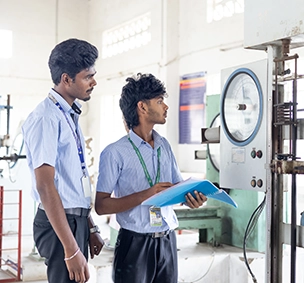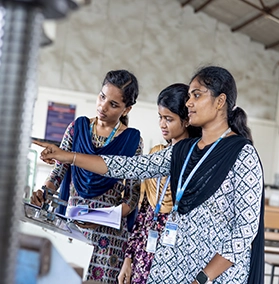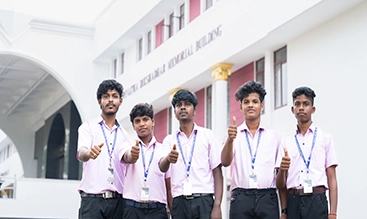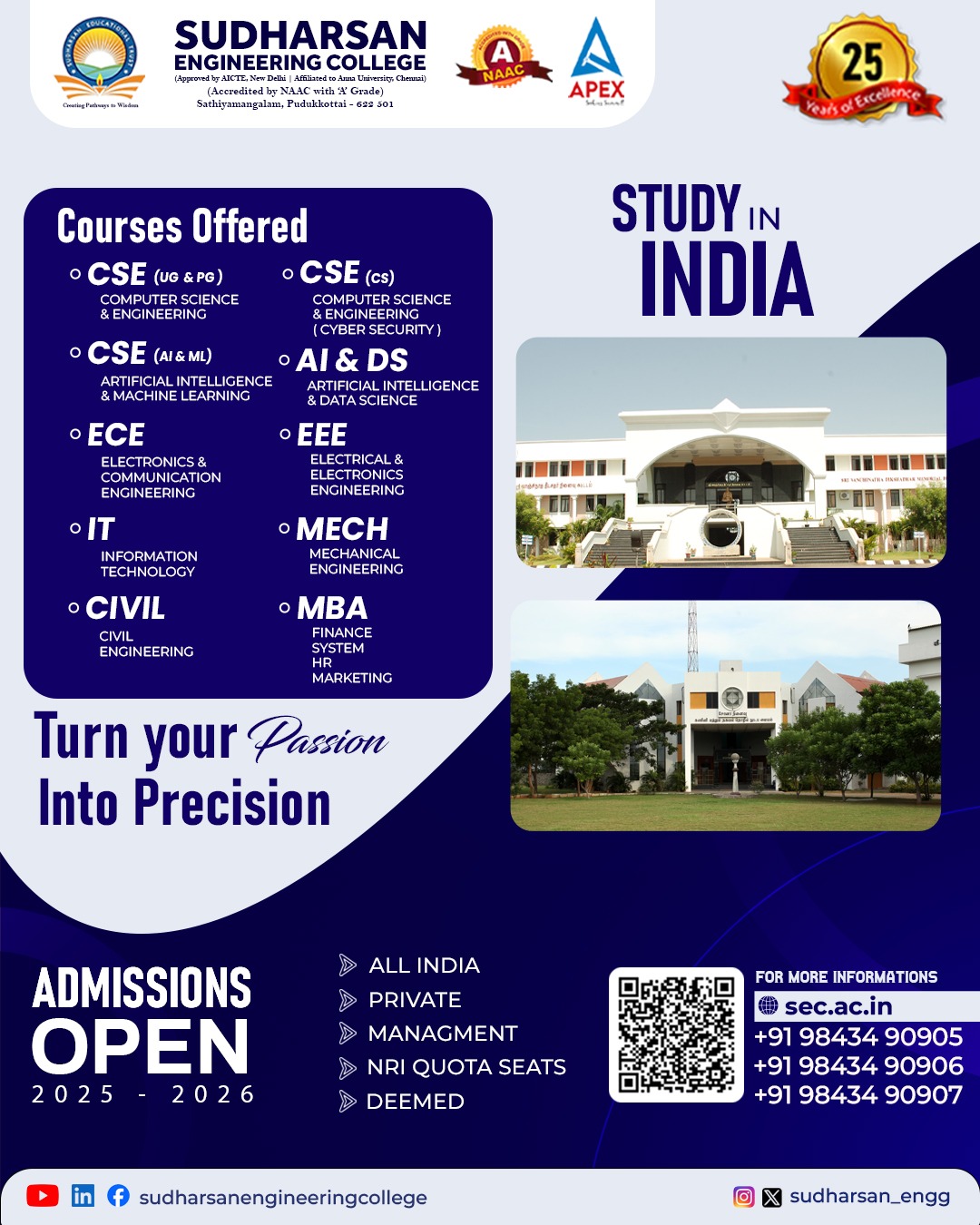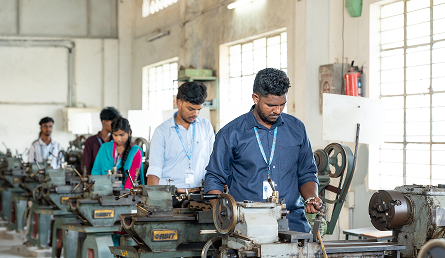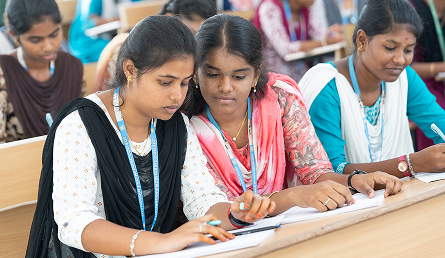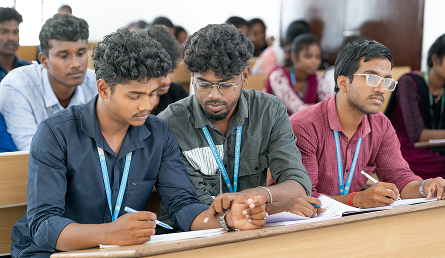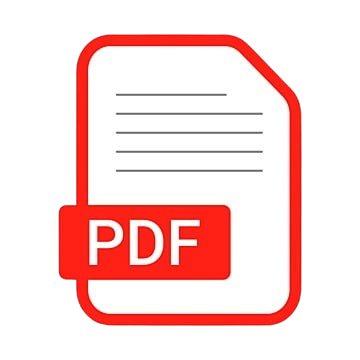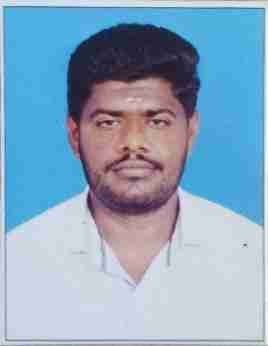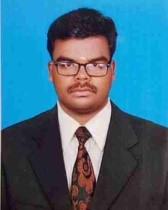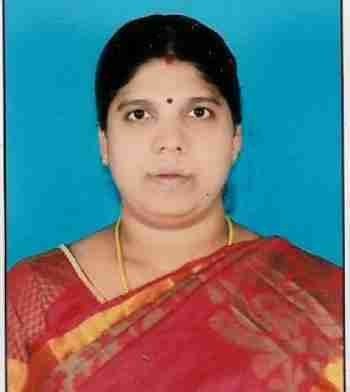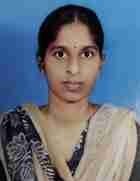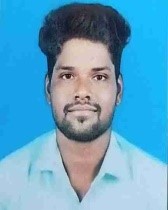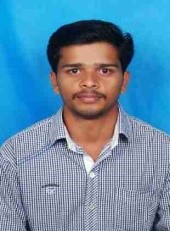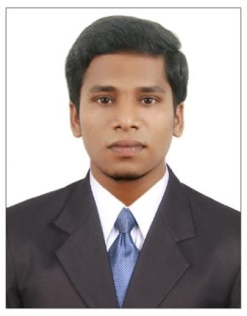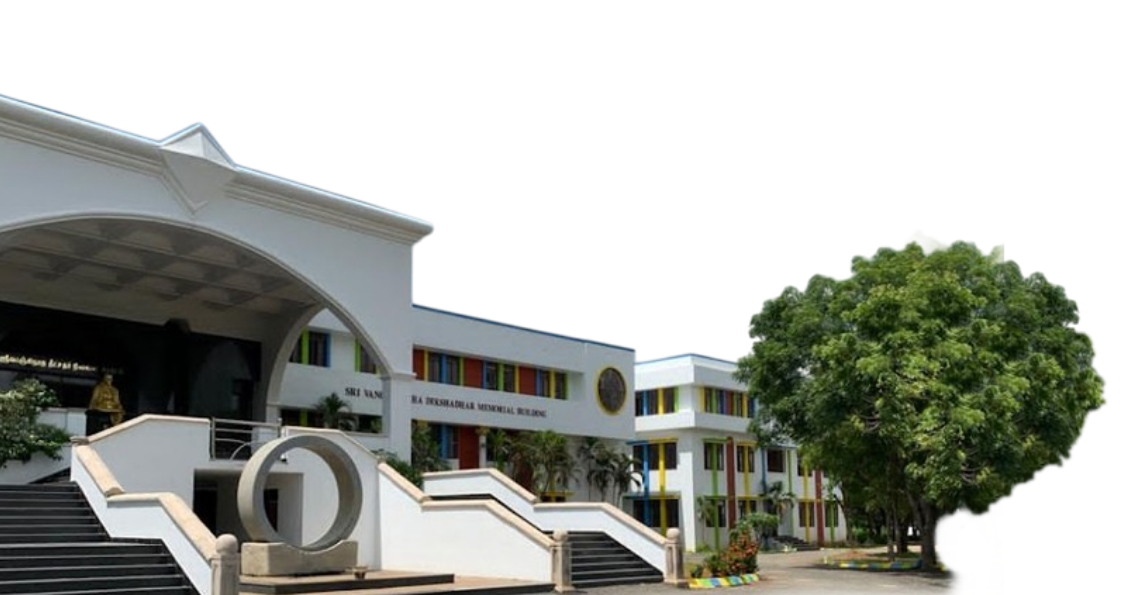Civil Engineering
Department of Civil Engineering – Building Tomorrow
Civil Engineering is the mother of all engineering disciplines - so proclaim by the proud civil engineers. Serving to meet one of the three fundamental human needs (food, cloth, and shelter) the discipline has grown long beyond shelter-building basics to sky-scraping towers to high-rise dams to long-span bridges, and to odd-shaped roof structures. To-day's hi-tech Civil engineers are not content with designing and building ordinary-looking houses and roads of the yore, but want to create 'Designer' structures that will challenge their synthesis skill and speak of their profession.The Department of Civil Engineering in Sudharsan Engineering College recognizes the need of the time and provides for the engineering enterprise in the field.
The department is well-established in every sense of the word. The human resource, namely, the faculty, is rich in qualification and high in caliber. The physical resource, namely, the laboratories, is complete in equipment and modern in deployment. The teaching resource, namely, the books, models, and charts, are abundant in number and selective in quality.All put together effectively by the rigorous curriculum delivery of the college,it is ensured that the students of Civil engineering go out as excellent professionals that our fast-progressing country urgently requires.
